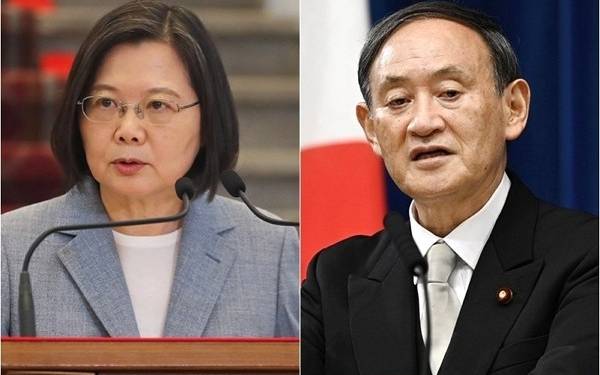It seems likely that the bilateral relations between the two neighbouring nations, Japan and Taiwan are set to herald a new dawn. New Japanese Prime Minister Yoshihide Suga is looking to end decades of silence with Taiwan as he plans to hold talks with Taiwanese President Tsai-Ing Wen. As things stand, it is not farfetched to say that Japan would officially recognise Taiwan, if the latter gives up its claims on the Senkaku Islands, which is currently under the Japanese administration.
Former Japanese Prime Minister Yoshiro Mori who recently visited Taiwan to attend a memorial service for former President Lee Teng-hui conveyed Suga’s message to Tsai. Mori during his meeting with Tsai told her that Suga would like to speak to her over the phone, which would break the decades-old silence that has been existing between the two countries.
“If there is an opportunity, he (Suga) would like to speak (with Tsai) over the phone,” said Mori.
If the call indeed takes place, apart from irking China, the call would also be the first such talks since formal diplomatic ties were severed between the nations in 1972.
Earlier in June, when Japan renamed the Senkaku Islands and fully integrated it into the country, Taiwan reasserted its claim over the island. The Taiwanese President said that Taiwan is the legitimate owner of Senkaku and the government will do its best to protect its sovereignty over the island and condemned Japan’s unilateral action.
However, this was not any hyper-nationalist claim of an irrational leader (as seen by many IR observers), but, very calculated and a shrewd move. By repeatedly claiming Senkaku, Taiwan remains a party in ownership over the disputed island. Now, in return for recognizing Senkaku as part of Japan, the Tsai government can ask for ‘quid-pro-quo’ recognition of Taiwan as an independent country.
Writing in Japan Times as early as 2016, Robert D. Eldridge, served as the political adviser to the United States Marine Corps in Japan from 2009 to 2015 argued, “In recognition of Taiwan’s support of Japan’s position on the Senkakus once and for all, Japan should also at the same time recognize Taiwan, as its relations have historically been even closer than those between Taiwan and the United States.”
The article was published a few days after Tsai was first elected in 2016 and Eldridge wrote, “Assuming Taiwan agrees, the latest democratically elected president, Tsai Ing-wen of the Democratic Progressive Party, could use her current influence to seek domestic consensus.”
It seems Tsai liked the idea and was waiting for an opportune time to implement it, and right after Japan integrated Senkaku, she made her first move to get Taiwan recognized by Japan in a quid-pro-quo move.
Japan has always balanced its economic and security ties with Beijing, but the China-made pandemic has altered the geopolitical equations as Japan is now taking a hawkish stance against China.
China’s aggression in the South China Sea has certainly not gone down well with Japan, and the diplomacy rule book is now out of the window. As the Wuhan coronavirus pandemic forces a complete reset in the geopolitical equations, it is in the best interests of both Japan and Taiwan to create a formidable alliance to corner China in the region.
For the alliance to take place, both sides will have to meet at a middle point. Suga’s expected call to Tsai marks a major change in Japan’s foreign policy and if Taiwan gives up its claims on the Senkaku Islands, Japan may well officially recognise Taiwan.





















